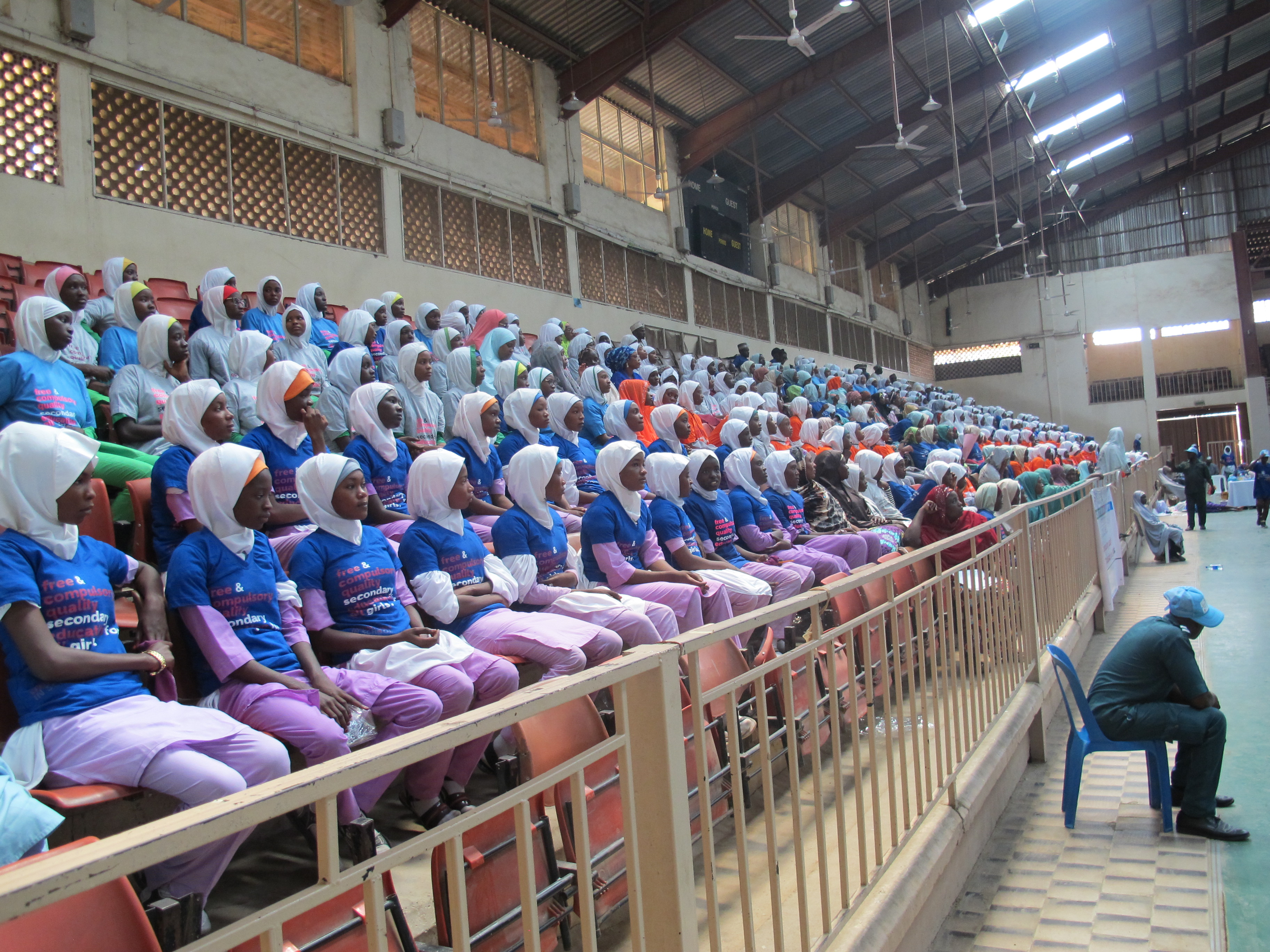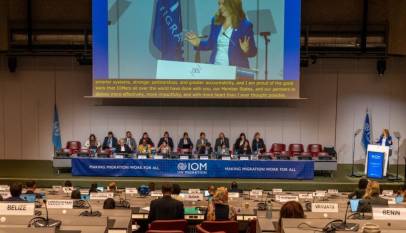UNICEF: Empowering Nigerian girls for a brighter tomorrow
On the occasion of the celebration of the 2019 International Day of the Girl cum 30th anniversary of the Convention on the Rights of the Child (CRC@30), the United Nations Children’s Fund (UNICEF) hosted series of activities aimed at building the leadership and entrepreneurial skills of girls as well as ‘Youth Talk’ sessions across Nigeria

The International Day of the Girl is dedicated to highlighting and addressing the challenges, as well as celebrating achievements, by and for girls, since the adoption of the Beijing Declaration and Platform for Action in 1995. Described as “the most progressive blueprint ever for advancing women’s rights,” the Beijing Declaration is the outcome of the Fourth World Conference on Women held in September, 1995, at Beijing, China.
On the other hand, the Convention on the Rights of the Child (CRC) is a UN human right treaty that defines the civil, political, economic, social, health and cultural rights of children and protects them against discrimination, violence and neglect. According to the CRC, children need to be treated with dignity and respect; have right to be protected against all violence and discrimination as well as the right to have access to education, amongst others.
Thus, to mark the 2019 Day of the Girl themed: “GirlForce: Unscripted and unstoppable”, as well as commemorate the 30th anniversary of the CRC, UNICEF Nigeria embarked on weeklong mentoring activities for girls, targeting both in-school and out of school girls at national, state and communities including in the state of Kano. The activities were targeted at empowering the girls with leadership, entrepreneurship and life skills so they can become valuable members of their communities, contributing to societal development.
Speaking during a session that marked the climax of the weeklong activities in Kano, tagged ‘Naija Youth Talk’, Mr Maulid Warfa, UNICEF’s Chief of Field Office (CFO) in Kano said although young people aged 15-35 constitute 64 million out of Nigeria’s 200 million people and despite being the backbone of national development, 10.5 million children were still not going to school in Nigeria.
“UNICEF and partners want to build on the momentum of young people as we commemorate the 30th anniversary of the Convention on the Rights of the Child this year and keep youth voices at the centre of the debate. Today’s conversation tagged, the Naija Youth Talk, themed ‘The Nigeria We Want, Voices from Kano’ will allow young people reflect on and celebrate the progress made by the youth in Kano to create the Nigeria we all want, as well as to build momentum and support for further action,” he said.
Mr Warfa said the Naija Youth Talk event was part of UNICEF’s global Youth Talks where young people come together to discuss and proffer solutions to crucial issues affecting them and their peers; he thus called on the governments of the states of Kano, Jigawa and Katsina (which formed the area of coverage for Kano field office) to domesticate and implement Nigeria’s Child Rights Act. Nigeria adopted the national Child Rights Act in 2003 to domesticate the international Convention on the Rights of the Child, however many states especially in northern Nigeria are yet to domesticate the law.

While delivering a goodwill message at the session, Ms Nafisa Ado, UK Department for International’s regional coordinator and head of Kano office said supporting quality education for girls and young women was a top priority of UK-DFID adding that they had, in several ways, demonstrated so through various girls’ education programmes in Kano and other states in northern Nigeria.
“In Kano, we fund several education initiatives – Fitila implemented by Discovery Learning Alliance, Educating Nigerian Girls in New Enterprises (ENGINE) implemented by Mercy Corps, Girls Education Project (GEP) implemented by UNICEF – all demonstrating our commitment to Girls Education in Kano state. In addition, the UK government is committed to boosting our policy advocacy on girls’ education through the Girls Booster Initiative. Our objective as DFID in supporting education is to support the achievement of the Sustainable Development Goal, SDG4, to ensure quality education for all,” said Ms Ado.
Prof Aisha Abdul-Ismail is the chairperson of the Kano High-Level Women Advocates (HiLWA), a UNICEF- initiated network of influential women focused on high-level advocacy for gender-responsive change. She said the series of activities marking the Day of the Girl which involved 150 girls from upper primary and junior secondary schools – drawn from the 6 UNICEF-GEP3 project Local Government Areas of Kano – was aimed at inspiring school-aged girls to enrol, remain and complete school.
“We hope to make the girls (mentees) ambassadors of girls’ education, by mobilising girls in their communities to enrol, remain and complete school so they can contribute to the development of their communities. We believe the girls will be tomorrow’s mothers of boys and girls; education will help the girls become good mothers who contribute to societal development. Many girls in hard-to-reach communities are not being sent to school; however, research has shown that investment in girls education contribute to sustainable development,” said Prof Abdul-Ismail.
Fourteen year old Hauwa Hamza from Ungogo LGA of Kano state was one of the 150 girls mentored in the weeklong programme. She said they had learnt a lot in the course of the weeklong girls’ camp including basic sanitation and hygiene, essay writing as well as communication and literacy skills. Other skills imparted to the girls were team work, problem solving, critical thinking skills as well as leadership and citizens development skills.











